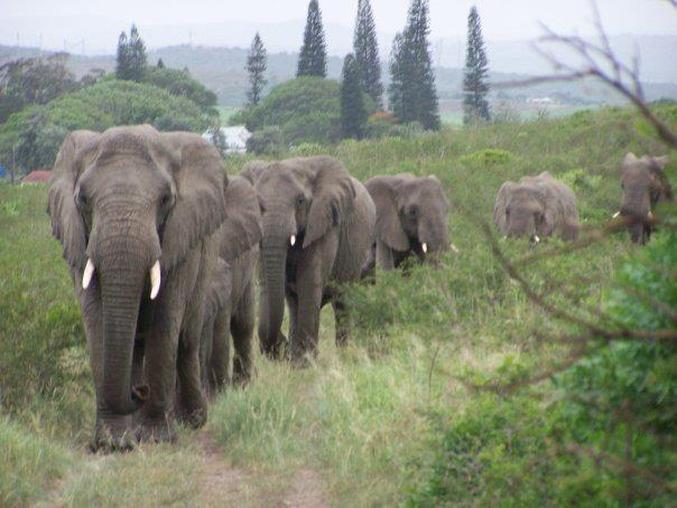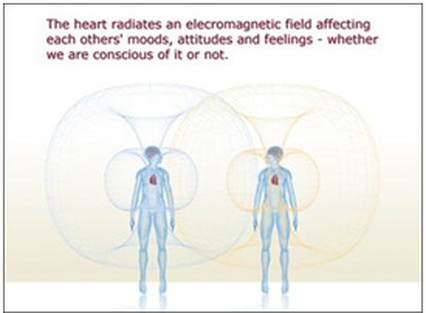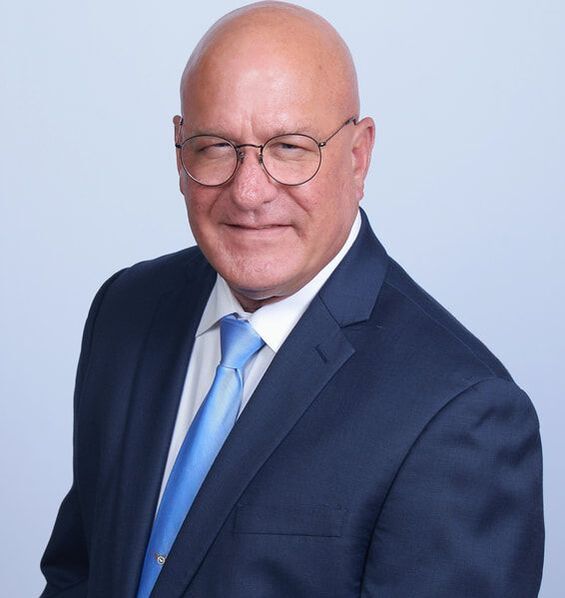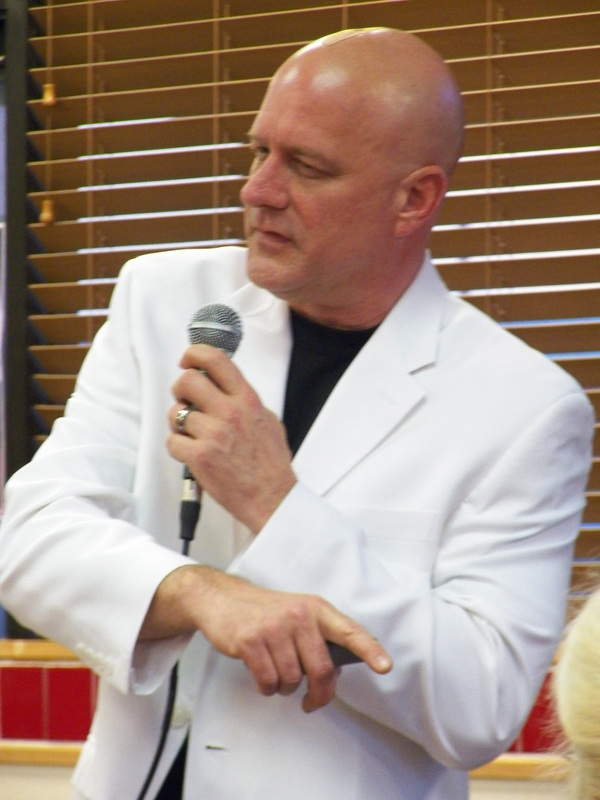|
“Which wolf will win?" The old Cherokee simply replied, "The one you feed." ~ The Two Wolves – A Cherokee Legend ~ Inspiration and lessons for your leadership journey! You may recall the story of the two wolves from Chapter 2, Baggage Check. There is a great leadership lesson in that legend for us. Although it is important to be aware of the "evil wolf" inside of us – of the negative baggage or ANTs we carry; it is more important to feed the good one; to pack and nurture positive, self-enhancing thoughts, beliefs, and feelings in our baggage for the leadership journey. After setbacks, we tend to over-analyze everything we did and everything ‘they’ did to us that caused the problem, trauma, life-changing event, project failure, sales-loss, or whatever. We end up arrogant, envious, resentful, angry, vengeful, or depressed. That’s the evil wolf. There is a place for self-examination and a thoughtful, objective learning from the past. But most of us aren’t readily equipped to do that alone. We end up feeding the evil wolf. In my new book, A Travel Guide to Leadership, I present proven steps and ways to feed your good wolf. These powerful and positive tools not only outfit you for your journey, but assist you in sailing along your journey, as well. Watch this short, inspirational video version of the legend, Two Wolves Inside Me. If you like this video clip, I encourage you to share it with the world and join me on my mission to empower and inspire millions of people around the globe. At the end of the video, you’ll see simple instructions on how you can help. Together we can spread words of Encouragement, Inspiration, and Empowerment... and wouldn't you agree our world could use a little more "Positivity" these days! Together we can make a difference... Have an amazing journey today! Alan Today's Affirmations (Repeat these quietly to yourself multiple times throughout the day.) I recognize that I have a good wolf and an evil wolf inside of me. I learn ways to avoid feeding the bad wolf. I learn ways to feed the good wolf. I spread encouragement, inspiration, and empowerment with those I love and lead. I am a loving leader!
0 Comments
Inspiration and lessons for your leadership journey! “Whatever happens around you, don't take it personally... Nothing other people do is because of you. It is because of themselves.” ~ don Miguel Ruiz ~ One of my secret angel guides to my new book and a New Millennial Leader, Wes Hopper, reminded me through one of his Daily Gratitude posts that I had been meaning to buy don Miguel Ruiz’s bestseller, The Four Agreements. I finally bought it this past weekend. The opening quote from him is quite famous, and apparently, is central to his teachings. I can’t wait to start reading. What he is trying to tell us is that everyone is walking around leading their life, telling their story, and doing their thing. Whether you are confronted with an angry customer, a disobedient child, a disgruntled direct report, a tardy, problem-student, or insensitive leadership – what they are doing is not about you. It’s about them. They are acting from their story and experience. Like I’ve told my beautiful teacher-wife, Leah, “A problem child is a child with a problem.” It’s not about you personally. When you can recognize that, you separate yourself from the negative emotions and energy associated with whatever they’re doing and you can now become empathic and reasonable. You can also more clearly focus on what your best response is to the situation. You might find that listening to them helps. Maybe simply naming the negative behavior is the best course toward resolution or de-escalation. Or, you might discover that the best thing for you to do is to separate yourself or the other person from the situation. The bottom line is that we don’t have to get sucked into the negative emotions, energy, and behaviors of others – you can now tap into your higher power as a leader and make a better choice on how to respond. Respond from your power – the power of love and gratitude. Love isn’t always a bed of roses. We’ve all heard of “tough love.” Sometimes, setting and enforcing the rules or restraining or separating from destructive behavior is the loving thing to do – you just choose to do it from a place of love, rather than punishment, anger, or revenge. Keep in mind, this week, that whatever other people are doing, it is because of themselves. Today's Affirmations (Repeat these quietly to yourself multiple times throughout the day.) I recognize that what other people do is because of themselves. I separate myself from other people’s negative emotions, energy, and behavior. I focus on what my best and loving response is. Sometimes, my best and loving response is tough love. I am a loving leader! Have an amazing journey today! Alan Inspiration and lessons for your leadership journey! “A boss creates fear, a leader confidence. A boss fixes blame, a leader corrects mistakes. A boss knows all, a leader asks questions. A boss makes work drudgery, a leader makes it interesting. A boss is interested in himself or herself, a leader is interested in the group.” ~ Russell H. Ewing ~ Tomorrow is National Boss’ Day. You’ve got a boss and you are a boss. Here’s a wake-up call for all the bosses out there. A 2007 Florida State University study published in Leadership Quarterly revealed: Since then, they have released the 2011 Employee Engagement Report, that while offering new information like more employees are looking for work outside of their current company, the disengagement numbers didn’t improve all that dramatically. A 2009 article published in the British Journal of Management drew the conclusion that destructive leadership is common and most people will experience it during their working lives. Studies like these have popularized the saying: People don't quit jobs, they quit bad bosses. Kind of makes you wonder why we even have a National Boss’ Day. One reason may be that the woman who created Boss’ Day worked for her father at his Illinois insurance company back in the late 1950s and 1960s. While there are a lot of great bosses and leaders out there, many of us still have a long way to go. In A Travel Guide to Leadership, I call for a new type of leader – the New Millennial Leader – and I show you how to start that journey and get it going. This Boss’ Day, spend some time reflecting on your leadership style and your team. Is that cute Boss’ Day card, gift, or lunch simply performed out of obligation or did you really earn it? Are you just a ‘boss’ or are you truly a leader? 40% of employees report working for a lousy or abusive boss. 39% of employees reported that their supervisor failed to keep promises. 27% noted that their supervisor made negative comments about them to other employees or managers. 24% reported that their supervisor invaded their privacy. 23% indicated that their supervisor blames others to cover up their own mistakes or to minimize embarrassment. A 2008 BlessingWhite report discloses some dismal numbers on employee engagement in North America: Over 70% of workers are disengaged at some level. Nearly 20% are fully disengaged. 13% are what they define as “Crash and Burners.” This is particularly disturbing because this group of employees represents disillusioned, exhausted, top producers. They can be bitterly vocal about leaders’ bad decisions or other colleagues and can bring others around them down. Estimated cost to US companies: $292-$350 Billion! Today's Affirmations (Repeat these quietly to yourself multiple times throughout the day.) I pursue honest feedback about my leadership style and skills. I spend focused, quality, and regular time with each of my team members. I encourage honesty and authentic relationships within my team. I take time on a consistent basis to reflect on my leadership style and skills! I am a loving leader! Have an amazing journey today!
Alan Inspiration and lessons for your leadership journey! “Character is how you treat those who can do nothing for you.” ~ Various forms attributed to multiple individuals ~ You may have heard the story about the professor who asked an interesting last question on the final exam of the semester. Some twists of the story say it was the only question on the exam. The question was, "What is the name of the janitor who cleans this room after class?" In the story, no student could answer that question even though they had seen and passed the man (sometimes a woman) dozens of times during the course of the semester. Or, you may have heard of or even practice having an HR representative or hiring manager play the role of receptionist as new candidates come in for their job interviews. Unbeknownst to the job candidates, how they treat the receptionist is a key part of the interview. Unfortunately, there are people who see themselves as part of some superior group. They would suggest that unnoticed people are insignificant, “little” people, or worse, are out right condescending, indignant, or prejudiced towards them. Many say one thing about these “others” when among their peers and when in the public eye, try to portray a completely different image. This is hypocrisy – and hypocrisy in a leader is one of the quickest ways to destroy trust and influence. They cease to truly be a leader and any power they may now still have comes merely from the position that they may hold. As I said in Chapter 8, The Trust Trek, we chose to be leaders. By doing that, everything changed and we’re now held to a higher level of accountability and integrity than ever before. Regardless of what’s written in our ethics code, code of conduct, compliance procedures, or taught in our trainings, what we say and do – whether right or wrong – is looked to and magnified by those around us as guidance for behavior in our organizations larger relations, and families. In the public spectrum, what leaders say and do is magnified by the media and gives citizens guidance for behavior in society (for better or worse). Are we saints or sages? Maybe, maybe not. But shouldn’t we and our leaders aspire to be? Religious and spiritual traditions, great thinkers on leadership, and the most current research, all point to the conclusion that being the most capable, authentic, virtuous, and most benevolent or loving person, also makes one the best leader. Part of that means recognizing and validating the inherent worth and dignity of every person. Are some more intelligent? Have more money? Born into families of power and privilege? Are others not? Of course. Either way, there are no insignificant people. Lest we forget, there is great danger in believing otherwise. Remember the history of slavery in the US and around the world, the Jewish holocaust, or the Rwanda genocide as glaring examples of what can happen if some believe others are less; are not worthy of being treated with respect and dignity. The United States’ Declaration of Independence asserted that we are “created equal” and “endowed with certain unalienable rights.” The United Nations’ Universal Declaration of Human Rights opens saying, “Whereas recognition of the inherent dignity and of the equal and inalienable rights of all members of the human family is the foundation of freedom, justice, and peace in the world…” Jesus of Nazareth is quoted as saying, “Truly I tell you, in so far as you did it for one of the least [in the estimation of men] of these My brethren, you did it for Me” (Mt. 25:40). Today, be the best leader that you can be. Make it a point to treat everyone with love, respect, and dignity – especially those who can do nothing for you. Today's Affirmations (Repeat these quietly to yourself multiple times throughout the day.) I respect the inherent worth and dignity of every person. I treat everyone, including the janitor, with respect and caring. What I say and do is magnified and used as guidance by others. I am a loving leader! Have an amazing journey today! Alan Inspiration and lessons for your leadership journey! “I have never understood the saying 'To think outside the box.' Why would anyone sit inside of a box and then think outside of it. Rather, just get out of the box.” ~ Lawrence Anthony ~ 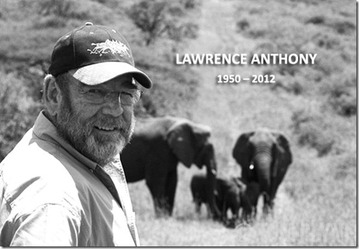 Lawrence Anthony is a legend in South Africa and the author of three books including the bestseller, The Elephant Whisperer. He bravely rescued wildlife and rehabilitated elephants from all over the globe. Two most notable accounts include the courageous rescue of the Baghdad Zoo animals during the height of the US invasion in 2003 and the 1999 heartfelt story of the rescue of a wild herd of elephants that was deemed too dangerous to live. The wild and traumatized herd. That wild herd lived on another game reserve some 600 miles away from Anthony’s private 5,000 acre game reserve, Thula Thula (meaning "peace and tranquility") in South Africa. They were troublesome, breaking out of the reserve, and violent. They hated humans. The owners wanted to get rid of them fast. If Anthony didn’t take them in, they would be shot. Anthony did take them in and more. He found himself fighting a desperate battle for their survival and their trust. Love and trust. Known for his unique ability to calm traumatized elephants, Anthony had become a legend. When they first arrived, Anthony worked with the herd intensely for three weeks never leaving their sides. He earned their trust, especially of the matriarch, Nana. They were mysteriously able to sense when he left the reserve and when he returned. When Anthony would return from trips outside of the reserve, the elephants somehow sensed his return and would come up to his house on the reserve and stand to greet him. Then, on March 7, 2012, Lawrence Anthony died. The funeral march. When he died of a heart attack, the elephants, which were grazing miles away in different parts of the park, began traveling over twelve hours to reach his house. According to his son, Jason, both herds (there are two herds in Thula Thula) arrived shortly after Anthony's death. They hadn't visited the compound where Anthony lived for a year and a half, but Jason says, "In coming up there on that day of all days, we certainly believe that they had sensed it." For twelve hours, the two herds of wild South African elephants slowly made their way through the Zululand bush until they reached the house of the conservationist who saved their lives. The formerly violent, rogue elephants, destined to be shot several years earlier as pests, held a two-day vigil at Anthony’s rural compound – to say good-bye to the man they loved. Dylan, Anthony's older son, said, “They had not visited the house for a year and a half and it must have taken them about twelve hours to make the journey,” he said. “The first herd arrived on Sunday and the second herd, a day later. They all hung around for about two days before making their way back into the bush.” Elephants traveling in single file to the Anthony home at a slow, funeral march-like pace. (Photo by Thula Thula Game Reserve.) Interconnectedness. So, how after Anthony’s death, did the reserve’s elephants — grazing miles away in distant parts of the park — know? “A good man died suddenly,” says Rabbi Leila Gal Berner, PhD, “and from miles and miles away, two herds of elephants, sensing that they had lost a beloved human friend, moved in a solemn, almost ‘funereal’ procession to make a call on the bereaved family at the deceased man’s home.” “If there ever were a time, when we can truly sense the wondrous ‘interconnectedness of all beings,’ it is when we reflect on the elephants of Thula Thula. A man’s heart’s stops, and hundreds of elephants’ hearts are grieving. This man’s oh-so-abundantly loving heart offered healing to these elephants, and now, they came to pay loving homage to their friend.” The electromagnetic heart field. One explanation might have something to do with our hearts. Recall from Chapter 2, Baggage Check, the findings of the Institute of HeartMath (IHM)? The heart’s electrical field is 60 times greater in amplitude than the electrical activity of the brain and the magnetic field of the heart is more than 5,000 times stronger than the brain’s magnetic field! The researchers were able to determine that the electromagnetic field of the heart can be detected for several feet in all directions around a person – but that was limited by the equipment they used. It is possible that it can be detected at much further distances by other yet unknown instruments – or, maybe by elephants. The IHM also reports that when a person generates positive feeling states, such as gratitude and love, and those feelings results in heart coherence, that person’s brainwaves can synchronize with someone else sitting just a few feet away – a biological empathy of sorts. I wonder if that phenomenon was also occurring in Thula Thula? Lawrence Anthony and the elephants of Thula Thula teach us important lessons about a leader’s love triumphing over violence, trauma, fear, and hate. They impart to us mysteries about our interconnectedness and how our very presence – our state of being – affects each other. Today's Affirmations (Repeat these quietly to yourself multiple times throughout the day.) I take time today to nurture my state of being. I nurture positive energy and feelings in myself and others! I am radiating peace, joy, goodness, abundance, and love! I celebrate the interconnectedness of all things. I am a loving leader! Have an amazing journey today! Alan PS. Special thanks to Tana Blair for the inspiration for this week's blog! |
Alan Mikolaj
Alan Mikolaj is a a professional, experienced, positive, and passionate speaker, leadership and organizational development consultant, change agent, author, and coach. He holds his Master of Arts degree in Clinical Psychology from Sam Houston State University. He is a certified graduate coach from Coaching Out of the Box and holds his ACC and membership with the International Coaching Federation (ICF). Free Discovery Conversation!
Impactful change starts with a conversation! Schedule your free, one-hour session by clicking here: Discovery Conversation with Alan
Or call or email: Contact Page In his third book, A Travel Guide to Leadership, Alan offers you simple, fundamental, and powerful lessons that have the power to transform you, your relationships, and your career.
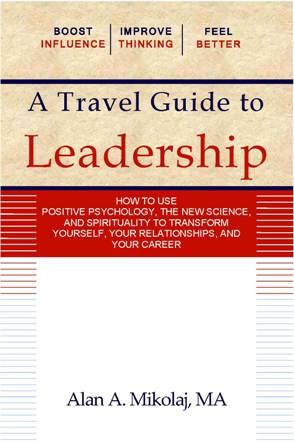
Blog Archives
July 2024

Linked2Leadership
Ranked #1 Business Blog! |
|
CONTACT
TEL: 346-291-0216 EMAIL: [email protected] SCHEDULE TIME WITH ALAN Free Discovery Conversation with Alan |

